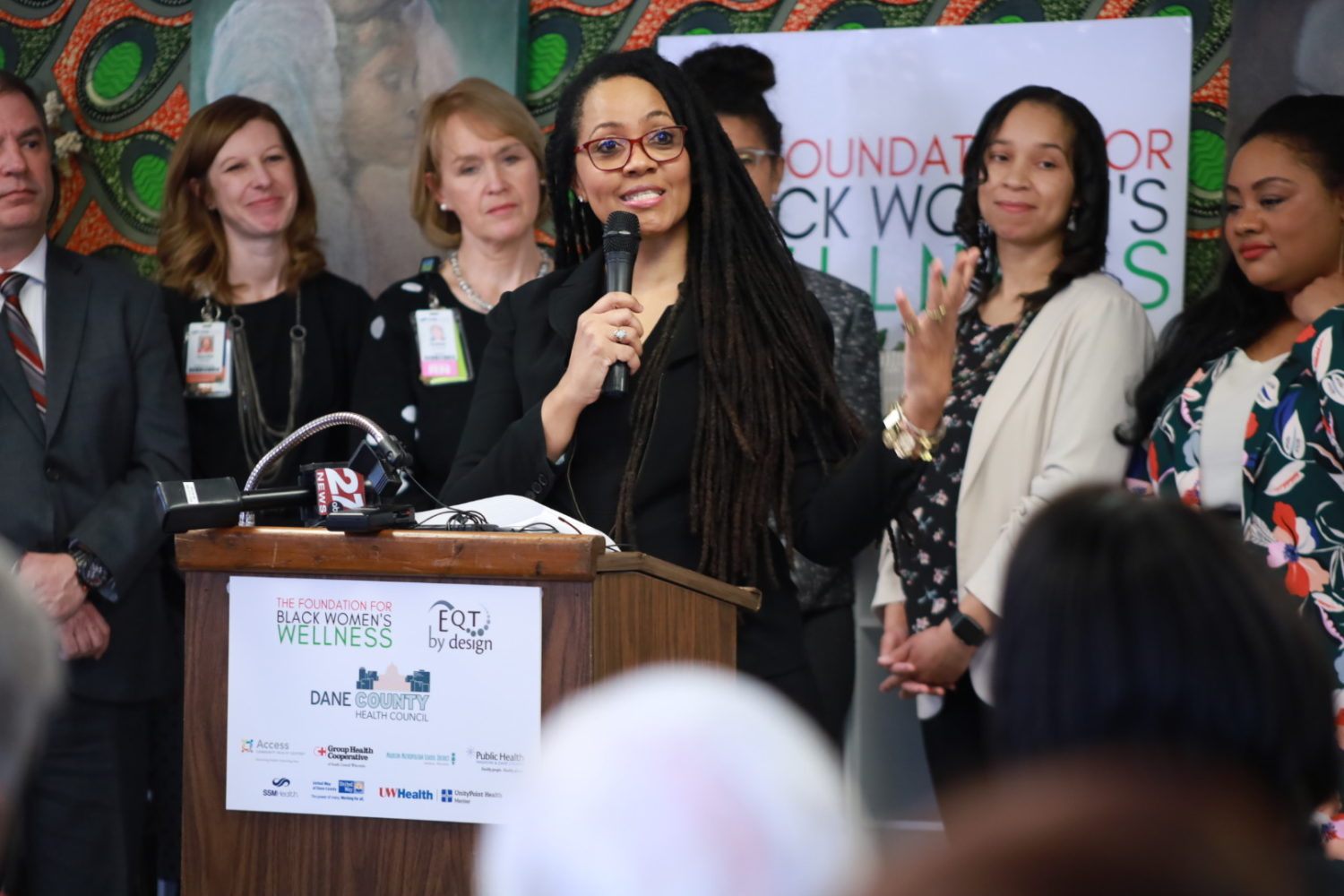
Public health advocates and mental health providers plan to continue serving clients in their time of need while practicing social distancing.
“We told the women that we serve, the volunteers, ambassadors, we told them to mentally prepare for the next several weeks,” said Lisa Peyton-Caire, founder of The Foundation for Black Women’s Wellness and Black Women’s Wellness Day.
She and members of her organization began discussing contingencies a few weeks ago, keeping the possibility of a pandemic on their radar. The Foundation for Black Women’s Wellness focuses on a “whole-life” wellness approach to serving and supporting women to improve their health and quality of life in order to disrupt the disparities.
“Regardless of the pandemic, we can’t stop what we’re doing around Black women,” Peyton-Caire.
This means transitioning to using technology as the primary means of communication, rather than as a backup. Peyton-Caire, an advocate for women’s health, said the organization will continue to hold fitness classes and support mental wellness through mindfulness over video.
“We closed our office and moved all of our education programmings online. I’m very grateful we could get everything online,” she said.
While Peyton-Caire said The Foundation for Black Women’s Wellness will continue to provide programming for clients, and will also continue to assist in connecting them to resources. She said a lot of people are struggling with anxiety during this time. Licensed marriage and family therapist Myra McNair said she and a group of other mental health providers began looking into telehealth equipment, electronic information, and telecommunication technologies ahead of time but had to wait to hear back from insurance providers for approval.
“We put a petition to receive teletherapy through the county for people who need chronic mental health services,” drug and alcohol counselor Jacquelyn Hunt said.
This would allow providers to continue to have a source of income and address clients’ needs. McNair said staff at Anesis Therapy have honored the social distancing guidelines amid the pandemic while keeping two locations open; however, this still poses risks to clinicians, office staff, and patients.
“For us, we have clinicians that are in their 60s and 70s or those that are considered in that higher risk group,” she said.
McNair said the front desk at Anesis has been busy. She said many clients called to cancel their appointments last week. Dane County and Group Health Cooperative approved telehealth services last week, however, they have yet to receive approval from the state.
“We have a waitlist of clients that were trying to get in and we’ve been making calls saying we have an opening available and asking if they’re willing to do telehealth,” she said.
McNair said some people might not be comfortable with telehealth therapy, however, their physical doors are still open. She also said people who feel anxious while social distancing should still feel seek therapy at this time.
“We just ask people to stay calm, keep the faith and reach out to service providers. Don’t suffer in silence because you don’t have to,” Peyton Caire said.
She encourages people who have immediate needs to dial 211, the non-emergency alternative to 911, managed by United Way. Residents can dial this number for home heating assistance, housing and shelter, mental health, and any number of other issues.
Peyton-Caire said residents should continue to comply with social distancing, follow guidelines, and not to go to the hospital unless they’re in a truly life-threatening situation. She and other health providers have advised individuals who feel sick to call their health providers first. Wisconsin still has limited testing available.
“Doctors and healthcare providers have taken on the responsibility of deciding who gets treatment so if you go to the hospital you’re likely going to be sent home because there’s limited testing,” Peyton-Caire said.
Wisconsin’s Department of Health Services said residents should also focus on their mental health, urging residents that their mental health is as important as their physical health. According to their website, “Strong emotions, stress and anxiety can cause chronic physical or mental health conditions to worsen.” Their website also lists additional resources for residents who are struggling while social distancing.
“I think just because we’re social distancing from each other, it doesn’t mean we can’t experience nature, take walks and catch up with friends or family members over the phone that we haven’t spoken to in a long time,” McNair said.



